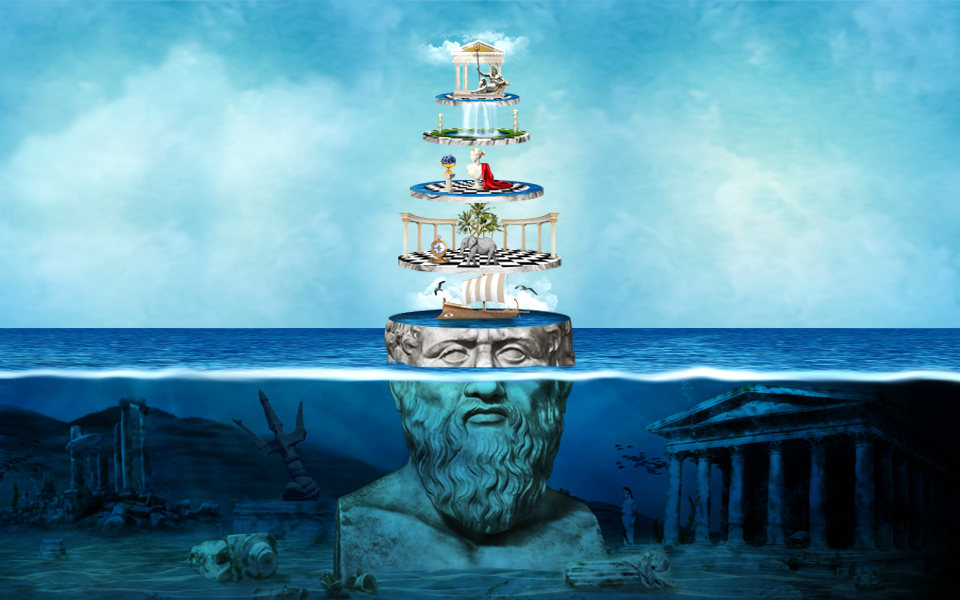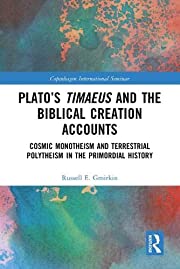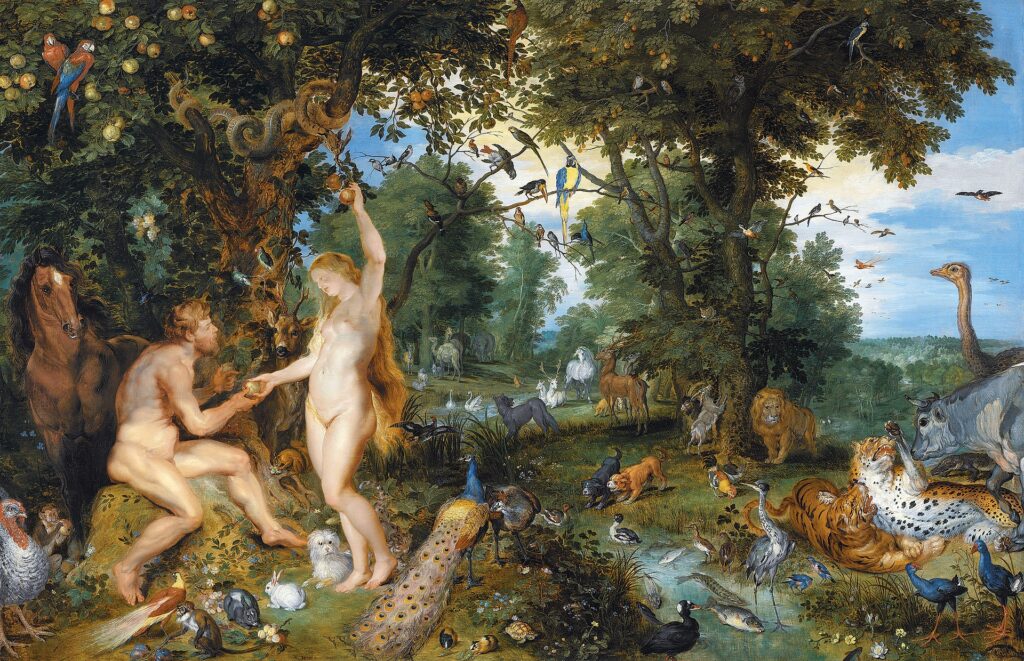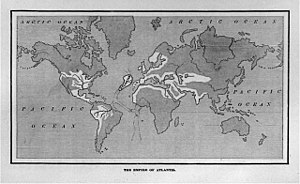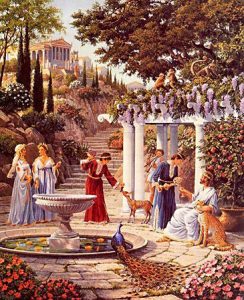This is a temporary break from themes biblical….
It’s damn depressing to see in this 21st century first world country so many university educated peers actually believing in past lives, the literal text of the bible, spirits, ‘mystical healings’ too bizarre and embarrassing to describe, various mantras and ‘dream catchers’ and silly myths like Atlantis.
I once actually took the time to write a partial rebuttal of a well-known book (at least well-known among Atlantis believers) by W. Scott-Elliot, titled “The Story of Atlantis“, in a very faint hope of somehow ‘redeeming’ a work colleague of mine who could see no reason to doubt the story.
I’m half-pleased to say that I think this piece, along with similar pieces I wrote critiquing nonsense like auras and Noah’s flood, did have a positive impact — although only for a year or so. So I finally decided the truth of the proverb that says:
those convinced against their will are of the same opinion still.
Nevertheless, knowing that most sensible clear thinking people will not bother to take the time of day to write anything so futile? as a critique of the myth of Atlantis, for those who might appreciate stumbling across one piece of ammo to throw at other misguided innocents, here is what I wrote about one aspect of Scott-Elliot’s book some years ago:
Testimony of Ancient Writers
Aelian belonged to the second century CE and wrote many credulous and fabulous tales in an age of gullibility. (People believed in phoenix birds being resurrected every few hundred years; in natural springs of wine; in islands that floated like boats; in real virgin births (not just Christians); in gods walking around among them in disguise; in spirit worlds above the clouds and beyond the stars, just a few hundred metres away; in giant men and turtles carrying the earth,….) Aelian believed that beavers knew they were hunted for their testicles so they when hunted they would bite off those testicles and throw them into the path of the hunters; but if hunters despite this trick continued to chase them they would stand up on their hind legs facing the hunters to show they had no longer had their testicles so the hunters would leave them alone. He wrote gullibly to entertain the gullible and compiled tales of the fabulous to tittilate his audience.
Scott-Elliot writes: “Aelian … states that Theopompus (400 B.C.) recorded an interview between the King of Phyrgia and Silenus ….” This is contextualized by preceding the passage with words like “testimony” and “evidence”. What is not immediately clear from Scott-Elliot’s “newsbite” is that the characters are all mythological. Silenus is, in fact, the name of a satyr! Yet Scott-Elliot presents an image of a serious interview between a king and a wise man by a court recorder as matter-of-factly as if it were a piece of surviving historical “evidence”!
What Aelian narrated was that the mythical Midas had his shepherds pour wine into a river so the grand Satyr who taught the god Dionysus would fall asleep after he had drunk from it. Once asleep he was captured by Midas’ shepherds and forced to reveal divine secrets to the king. The sorts of secrets he revealed:
1. In a far away land there are 2 types of trees on either side of a river, and if a traveller eats of one of those types, he will begin to grow younger. From that day on he will age in reverse until he finally becomes a little baby and then eventually vanishes altogether.
2. Another was how he (Silenus) and his divine pupil Dionysus, the god of wine and lust who was followed everywhere by lots of lesser satyrs, had just returned from showing people far off how to cultivate grapes and make wine.
3. Another was of a vast mythical land beyond Oceanus (not “Atlantis” as Scott-Elliot writes.)
4. And yet another, of course, was how he would allow Midas to ask to be granted any wish for releasing him… which led to the famous story of all he touched turning to gold.
There is no more obvious reason to believe any of these tales than there is to believe in the existence of satyrs, or that beavers bite off their testicles and throw them at chasing hunters, or any of the other myths told about Dionysus, satyrs or mythical kings.
The second ancient writer Scott-Elliot lists is Proclus. Proclus wrote in the second century CE and was a commentator on Plato. Since Scott-Elliot later lists Plato as another source it is wrong to cite Proclus to sound like an independently supporting witness. Proclus wrote about what Plato wrote.
Diodorus Siculus’ reference can more justifiably be seen as a reference to Britain or the Canary Islands. The Coast of Africa was adjacent to Spain, both bordering the “Pillars of Hercules” (Strait of Gibraltar) and was the main territory of a Phoenician kingdom. It would be a mistake to assume that ancient sailors, even the Phoenicians, passed on an accurate size or shape or even number of land masses in those times. We need only observe some of the bizarre distortions of islands and land areas in ancient maps to appreciate the difficulties, misconceptions and ignorance that bedevilled ancient geographers. It is not hard to imagine how the idea of a large land mass “a few days” west could have emerged in the consciousness of sailors used to hugging the coasts as they sailed and who may have been swept out away from their African journey, making various sightings of what were in fact the somewhat sizeable Canary Islands before their return.
Plato frequently created his own myths to illustrate his views of human nature and the world. Two of his most famous literary creations are his Cave and Republic. Just because Plato said his story of Atlantis was “true” does not necessarily make it so. The literary context of this claim must be assessed. We know even today of many tales that begin with an assertion of their truth yet where our cultural background makes it clear to us that such a claim is made only for dramatic effect. Similarly there are many examples of ancient writers clearly writing fiction but who employ many techniques to make their tales sound true and convincing. One of the literary techniques used was to create scenes with masses of incidental details to give an aura of eyewitness recollections and veracity. Homer’s epics are the most famous of early examples of this. If detail and colour were evidence of eyewitness testimony then we would have to believe in magical caves of nymphs, and in the truth of the minutiae of the hundreds of soldiers and ships of each of the named scores of kings who led them to Troy, in the reality of the graphically portrayed Hades complete with its list of who’s who seen among its hapless ghosts, and in the various specifically dilineated layers of astral orbits surrounding the earth.
Atlantis was a sort of Utopia myth created by Plato and its “truth” lay in the fact that he was creating it to warn his fellow Athenians of the dangers of pride and evil ways no matter how great they had been. And he created it with such elaborate detail with so many literary subtle assurances of its truth to add to its impact that it is as memorable and believable like any good story. In such a creation he was no different from those who created so many other ancient mythical tales. And no doubt many ancients did take his story as true, just as they took stories of testicle tossing beavers as true. It was a gullible age. Magicians could literally float through the air, dogs and horses could speak to humans, and living creatures could spontaneously emerge out of thin air. They knew such things were true because they had always heard them from someone who heard them from someone they could trust.
Distribution of Flora and Fauna
Similarities across continents has many explanations. Australia and South America have strange birds and animals with odd similarities. One might postulate a lost continent once joining them. Or one might accept the evidence for continental drift and fossil and genetic evidence that leads to understanding that Australia and South America were once joined to what is now the Antarctic and the flora and fauna that was known to this land mass followed variant natural adaptations after the land masses separated.
Deep-Sea Soundings
Scott-Elliot notes that the depth of the “Atlantis continent” is 100 to several 100 fathoms underwater now. That such a land mass was at any time in the history of humans above sea level is simply incredible and on a par with the Creationist belief in a literal Noachian flood. The New England Skeptical Society have written the following:
From a geophysical point of view, islands don’t just “sink” of their own accord, overnight or even over a few days, years or centuries. Being less dense than the crust and the interior of the Earth, the continental masses just float on the denser material. Rising sea levels may flood parts of continents, but the levels of continents themselves vis-a-vis the Earth’s solid crust change little or not at all. Even if the seas had risen high enough to inundate Atlantis, all of its continental landmass would still be visible underwater.
Scott-Elliot’s method
The method of Scott-Elliot is to interpret scientific debate over certain questions at the time (1896) as meaning such things were a “mystery” or “unfathonable”, and that his theory of Atlantis would give a neat answer to “the question”. Such a method of logic is invalid. Firstly, this greatly misrepresents what scientists do know about such questions and misunderstands (or is ignorant of) what the scientific debates are actually about and what they really do concede and understand. Scientific debate is what advances and refines scientific understanding. Secondly, to simply postulate an idea and say it answers pretty much everything means nothing. Ideas, theories, must be tested and therefore they must be testable. Otherwise they have no more validity than saying that God or Satan or aliens or gremlins did it or the Tooth Fairy and Santa Clause are real. If they are untestable assertions they are really matters of faith, not evidence.
Scott-Elliot for most part appears to be summarizing secondary sources and is often vague on details that would enable a reader to check these and trace back to the original documents. This is odd. If one wishes to persuade and one has specific verifiable citations or evidence that clearly clinched his case (not secondary assertions or imprecise generalized statements) then one would surely present them.
Technorati Tags:
Atlantis, Scott_Elliot
Like this:
Like Loading...
